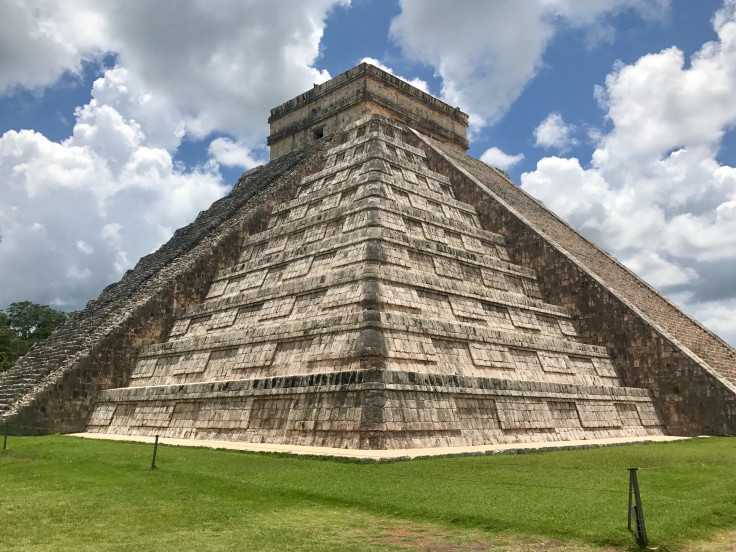In southern Mexico, hundreds of handicraft vendors continued protesting for the third day Wednesday by blocking roads to the Mayan ruins of Chichen Itza.
They are mostly Mayans from nearby towns who have been selling goods at the entrances and parking lots at the ruin site since a long time, reported the Associated Press. According to the vendors, guards at the ruins discriminate and violate their rights as descendants of the Maya people who built the temples more than 1,200 years ago.
Arturo Ciau Puc, an activist with a local farm group known as CIOAC, said that the guards "prohibit the vendors there from speaking Maya." The activist noted that just because they are indigenous, it doesn’t mean they "should be treated like second-class citizens.” At some of the roadblocks, protesters were seen holding up signs that read, “No More Harassment of Artisans," reported ABC News.
The protest lines were set up by vendors late Monday. They are demanding greater access to the complex to sell their products. The demand comes after security guards apparently threw some of them out. The ruin site, operated by Mexico’s National Institute of Anthropology and History, has boundaries that are somewhat vague. A few local communities have claimed some of the land. Vendors and guides who look for customers sometimes set up for business inside the ruin site. Some said that it ruins the experience. Chichen Itza is Mexico’s most-visited archaeological site, which gets approximately 2.5 million visitors every year.
Vendors are “invasive” and want “to sell Chinese merchandise in front of the pyramid," Diego Prieto, the institute’s director, said on Wednesday. He was referring to the pyramid of Kukulkan, which is also known as El Castillo, or The Castle. It is often considered the centerpiece of the ruin complex.
Puc said that protesters were demanding the replacement of the director of the archaeological zone. They have accused him of “arrogance.”
Locals are also angered by reports that wealthy foreign tourists are allowed access to the ruins at night, or given permission to climb the pyramid. It is something that is supposedly prohibited to protect the structure.
The institute said in a statement that it had tried to bring vendors under control “to ensure the proper functioning of the site to benefit visitors, by regulating the vendors that have invaded the area.” The institute added that the site remained open to tourists and shared that officials were open to talks with the vendors, who are protesting, reported Wtop news.
The protest has highlighted the problems faced by modern-day Mayans. Most of them live in poverty. Puc said that in the end, it is thanks to them, or their "ancestors, that these archaeological zones exist at all."

© 2025 Latin Times. All rights reserved. Do not reproduce without permission.





